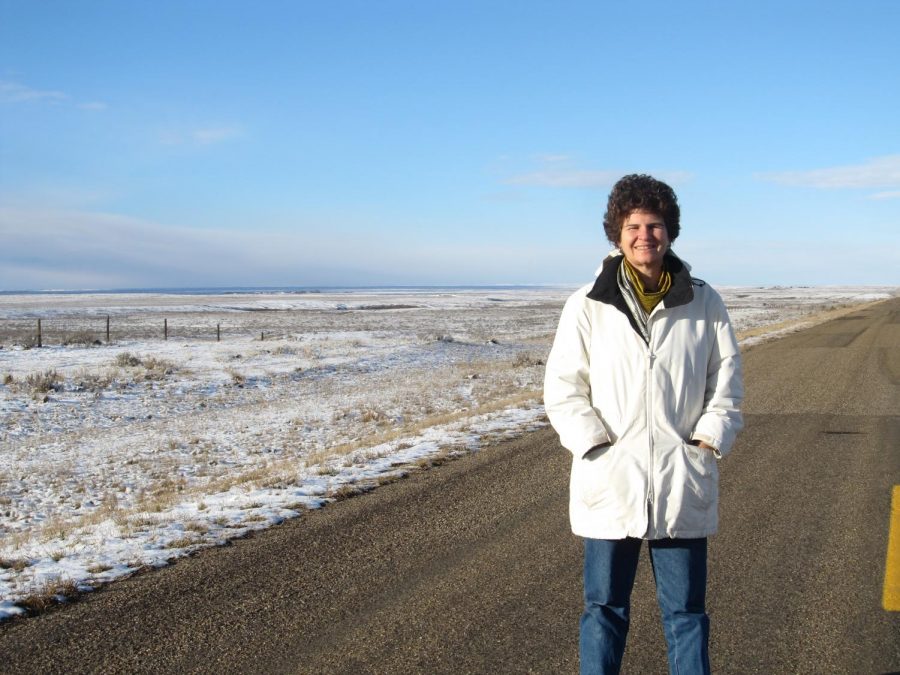Chasing the path of expansionism
Hamline professor Kate Bjork introduces her 10-year project on the complex history of United States power.
Professor Kate Bjork took various research trips, such as to Fort Assiniboine and Fort Walsh along the Canadian border.
November 16, 2018
Kate Bjork has worked at Hamline for 16 years as a history professor. She specifically studies and teaches Latin American history, with a focus on the establishment of empires during the era of European colonialism. Her new book “Prairie Imperialists: The Indian Country Origins of American Empire” delves into the history of United States expansionism and imperialism.
“Since I was in grad school, I’ve been interested in the comparative history of empires and particularly in the development of the United States as an empire,” Bjork said.
The biographical subjects of interest include three U.S. army officers. Their conquests of what was deemed at the time to be “Indian Country” is tracked with the development of their careers and their interactions with Native peoples.
“Taking on large institutions, finally I adopted the mechanism for telling the story of following three individuals, officers in the U.S. military,” Bjork said.
Bjork notes the somewhat unique relationship she has to her subjects as a biographer. She recognizes the misdeeds and unfavorable actions of the officers at hand, but felt the structure she adopted was the most comprehensive way to write the book.
“I have a kind of ambivalent relationship with them. I think oftentimes biographers, they fall in love with their subject, they write about their subject because they really admire the person,” Bjork said. “To various degrees I find my main subjects not always admirable. I adopted them as the best way to tell the story.”
Despite having conducted previous research in her field, the writing process was a new experience for Bjork but also one she thoroughly enjoyed. She searched through literature and National Archives for useful material in her research.
Bjork also mentioned her experience investigating on the ground, including her travels to historic forts built for military strategy that once policed Native Americans attempting to cross the Canadian border.
“I wanted to go to some of these forts that were built in the 1870s and 1880s out on the Western plains,” Bjork said. “That was very interesting, it was a very on-the-ground kind of research, it’s really fascinating.”
This effort to achieve personal experience with her topic illustrates Bjork’s goal of creating a tangible and navigable narrative to convey the history of U.S. power for readers. Her interpretation of the importance of that power is one she feels should be thoroughly understood in her field.
“It’s an interpretation of history that’s come about, really since the 1960s in the United States,” Bjork said. “The United States is militarily and economically a very powerful country and I think it’s important to sort of go beyond our myths of the development of the country, to look at how much of that power is being forged through warfare.”
Fellow academics in the field have expressed similar feelings. Among these is Christopher Capozzola, a Massachusetts Institute of Technology history professor.
“Katharine Bjork delivers a necessary and overdue analysis of a pivotal period in U.S. history,” said in a review of Bjork’s work. “She traces the transfer of institutions, the overlap of personnel, and the persistence of mindsets between America’s ‘Indian Wars’ of the late nineteenth century and its post-1898 insular empire. This is the book we have been waiting for.”
“Prairie Imperialists: The Indian Country Origins of American Empire” will be published in December of 2018.

